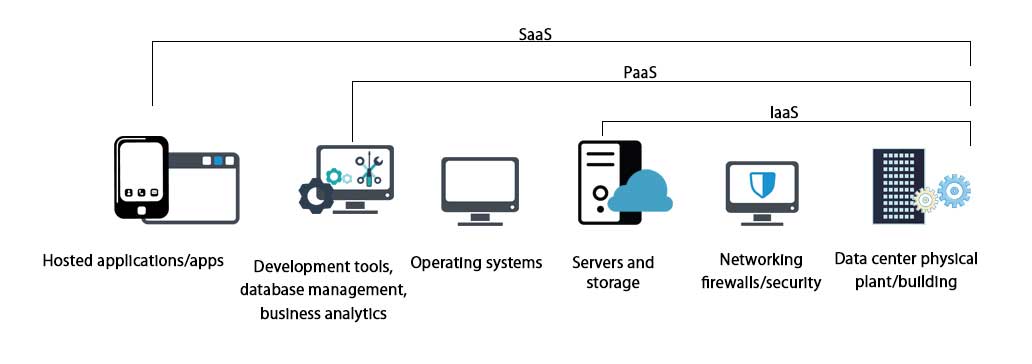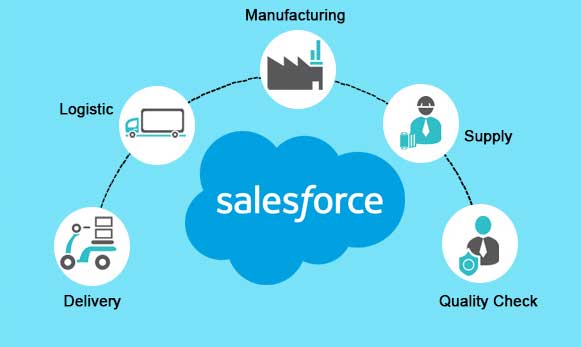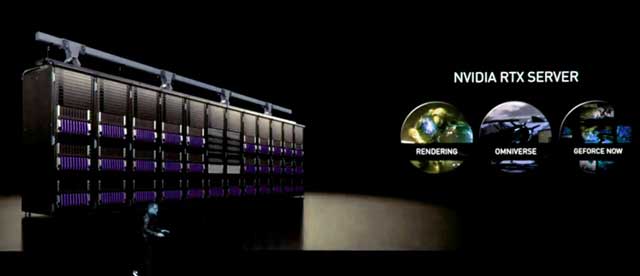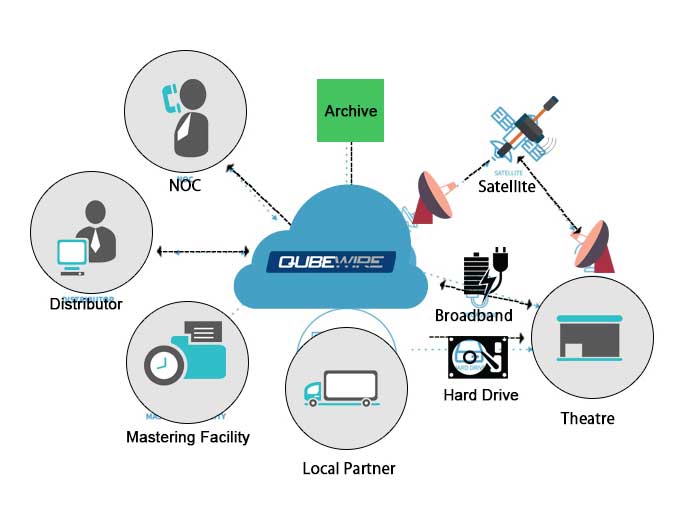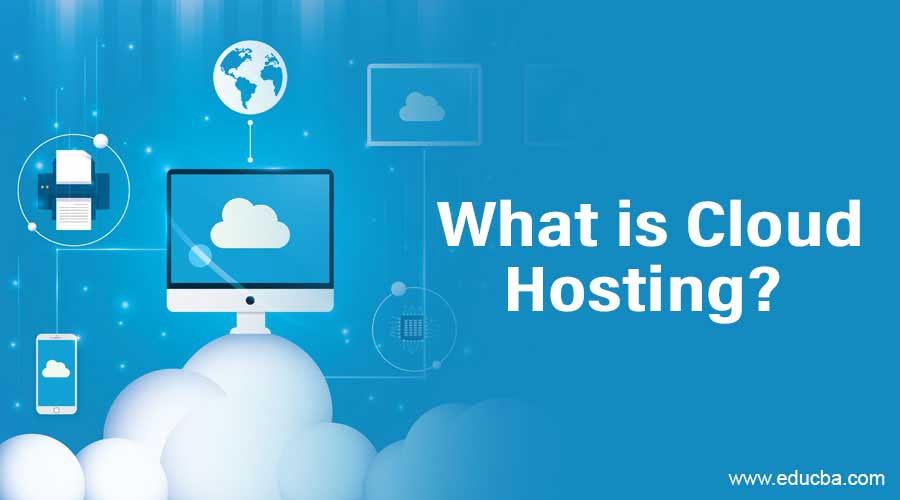
Introduction to Cloud Hosting
Cloud hosting is defined as a way of how we configure the servers; typically, server configuration involves the physical constraints of the servers on which the site is hosted, but with cloud hosting, we rely on a unique server configuration, cloud hosting is categorized into three categories, i.e. Infrastructure as a service, Platform as a service and Software as a service, with there applications like google accounts, Salesforce, Tensor Processing Units, Cloud Gaming, Digital Content Creation, Content Distribution, etc.
Types of Cloud Solutions
- IaaS: Infrastructure as a Service
- PaaS: Platform as a Service
- SaaS: Software as a Service
The following are the Types of Cloud Solutions.
Infrastructure as a Service
IaaS provides access to IT Infrastructure like computers, networking solutions, datastores, etc. It provides you with more flexibility than traditional legacy IT systems for future upgrades, load-driven management, etc.
Platform as a Service
PaaS provides ready-to-build and deploy an environment where the cloud service providers manage the underlying server, operating system, and development tools. It removes the clutter of managing the software maintenance & patching and simplifies resource management tailored to your requirement. In general, cloud hosting providers provide a range of services that are ready to be customized for a developer’s requirements.
Software as a Service
SaaS provides end-user apps based on the cloud for the consumers. The last 2 types of cloud services were enterprise-oriented, whereas SaaS is consumer-oriented used by millions of people ranging from enterprises, developers, and common men around the world.
Applications of Cloud Hosting
The following are some of the Applications of Cloud Hosting
1. Google Accounts
Google is one of the companies that has been extensively using cloud solutions from an average consumer to enterprise customers successfully. Google Accounts (SaaS) is the most used cloud solution, which includes apps like Gmail, GSuite, Photos, etc. It has been integrated into every android smartphone, contributing to be a daily driver for billions of people. Simple, powerful, and free-to-use apps from Google Accounts let users onboard and reap the advantages effortlessly. A similar Apple alternative iCloud is known for its simple but elegant features.
2. Salesforce
Salesforce is a game-changer in the Enterprise space where companies can manage their CRM capabilities across the organization with multiple devices. It is extremely flexible and scalable to the enterprise requirements. Since its launch, Salesforce has been adapted by thousands of organizations around the world to leverage its abilities. It helps companies track their product across every value streams from inception to sales in a secure way. Salesforce introduces new products aggressively every year to cater to different requirements of enterprises across the economical landscape. Similar apps like Freshsales, Zoho CRM, etc., provide a similar solution like Salesforce.
3. Tensor Processing Units
AI is the driving force of current software solutions; TPUs (PaaS) provided by cloud hosting providers help individuals and Enterprises to experiment and develop AI-driven apps with existing cloud benefits like scalability, reliability, etc. Cloud providers have even engineered out of the box tools for specific use cases like Sagemaker (AWS), Rekognition (AWS), Databricks (Azure), ML Engine (GCP), etc. These cloud solutions for AI prevent the need for personal cutting-edge hardware and the corresponding pain for upgrading.
4. Cloud Gaming
Cloud gaming was a myth, or should I say a marketing gimmick. But only until recently, when tech giants started jumping in to make it plausible for mainstream gamers. The gaming industry is one of the fast-expanding entertainment industries that is catching up rapidly on the cloud in order to bring more flexibility to creators and gamers alike. Creators can deliver more games to the masses, whereas gamers can forget about their hardware compatibility for the latest titles. Stadia (Google), xCloud (Microsoft), PlayStation Now (Sony) are some of the leading cloud gaming providers with pioneering features.
5. Digital Content Creation
Like gaming, new-age digital content creation like 3D rendering, media encoding, etc., require cutting edge hardware to efficiently manage workload. Cloud-based solutions have arrived as a solution for various requirements like rendering (GCP Zync), game development (Amazon Lumberyard), Game hosting (Amazon GameLift), etc. These apps provide on-demand SaaS with scalable compute for demanding workload. Nvidia is the market leader in hardware provisioning for cloud GPUs. They even have their own cloud solution for enterprise users. Creators can forget about their machine maintenance and their software licensing to concentrate more on their creative work.
6. Content Distribution
Secure distribution of Intellectual properties or Copyrighted materials is imperative for content management companies. It must be fast, secure and scalable to meet market demands and to get an edge over fellow competitors. Qube is one such company that efficiently reaps cloud benefits to deliver media directly to theatres in a secure manner without any compromise in the quality of the media. It eliminates middleman, thereby preventing the cost and delay in distribution. It also helps media houses to remotely manage their content as and when required according to their copyright claims.
Conclusion
We have come to a point where we all can agree that cloud hosting is certainly the backbone of new-age digital solutions. They are both developer and consumer-friendly. Yet even the mighty cloud solutions have their pitfalls. Security is a major concern in cloud-based apps. Enterprises protect their access to such apps with cutting edge security measures, but a common user may not be aware of basic security measures like two-factor authorization, etc. Yet, in IRL, we see both fall prey to major security breaches impacting millions of users every year. Hence while we enjoy the benefits of cloud hosting, we should also take measures to protect our data in every available way. There are multiple ways to do the same, but that’s another essay for another time.
Recommended Articles
This is a guide to What is Cloud Hosting. Here we discuss the basics of cloud hosting and some of the interesting applications of cloud hosting. You may also look at the following article to learn more –
